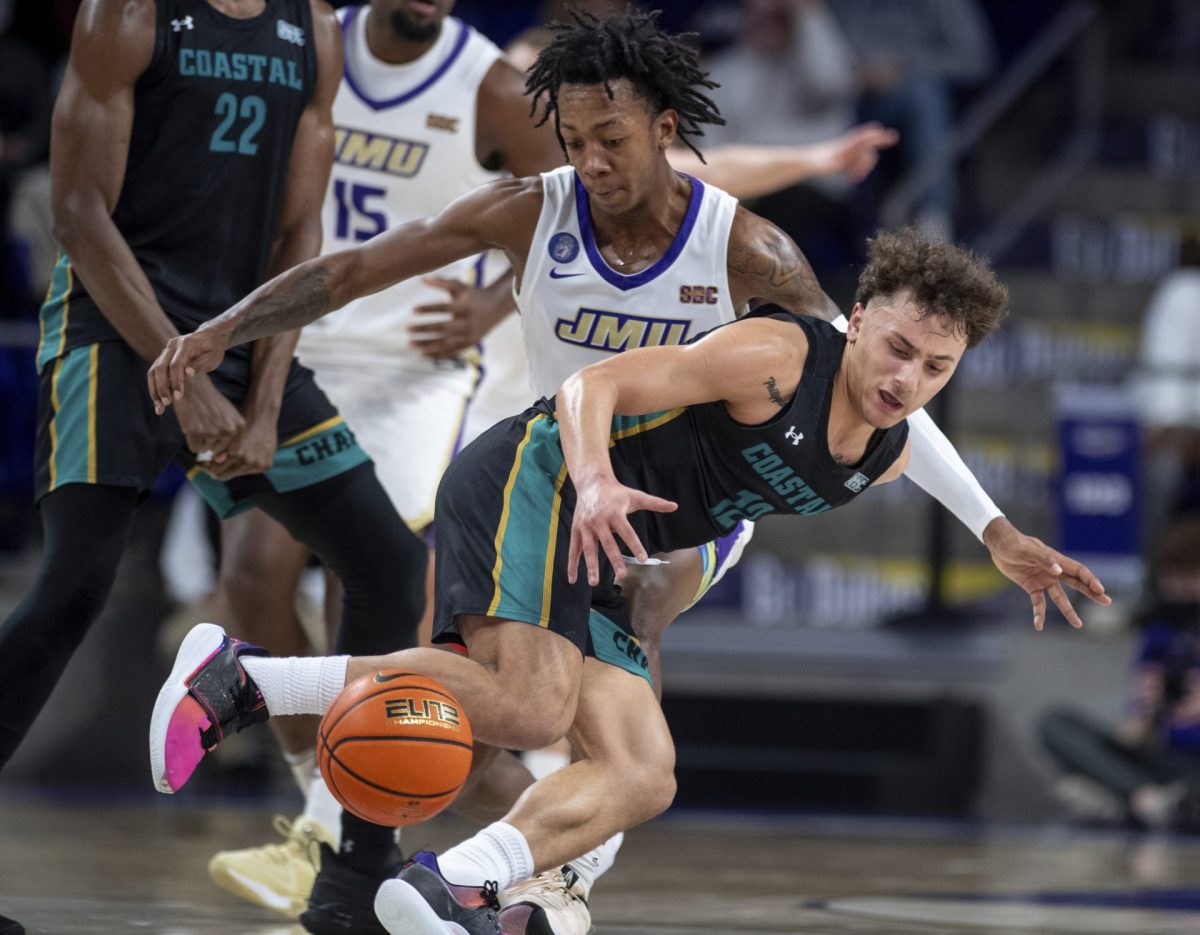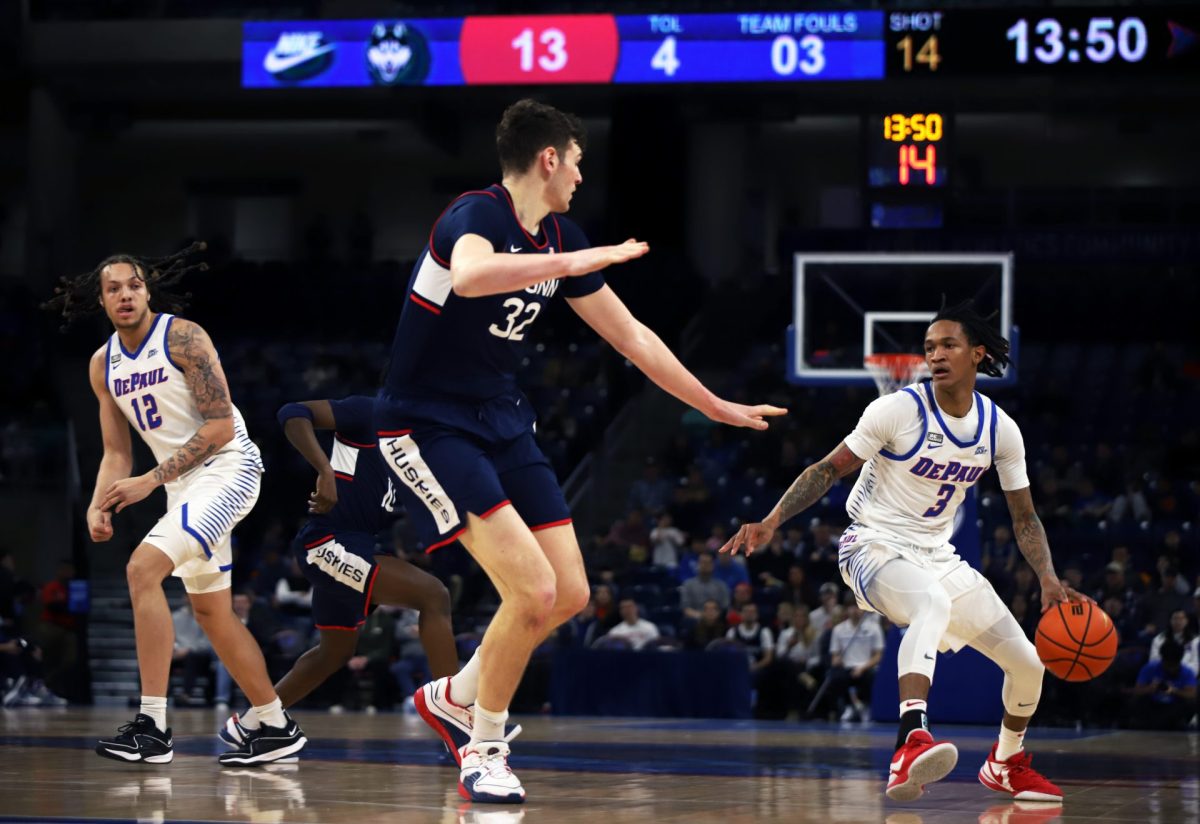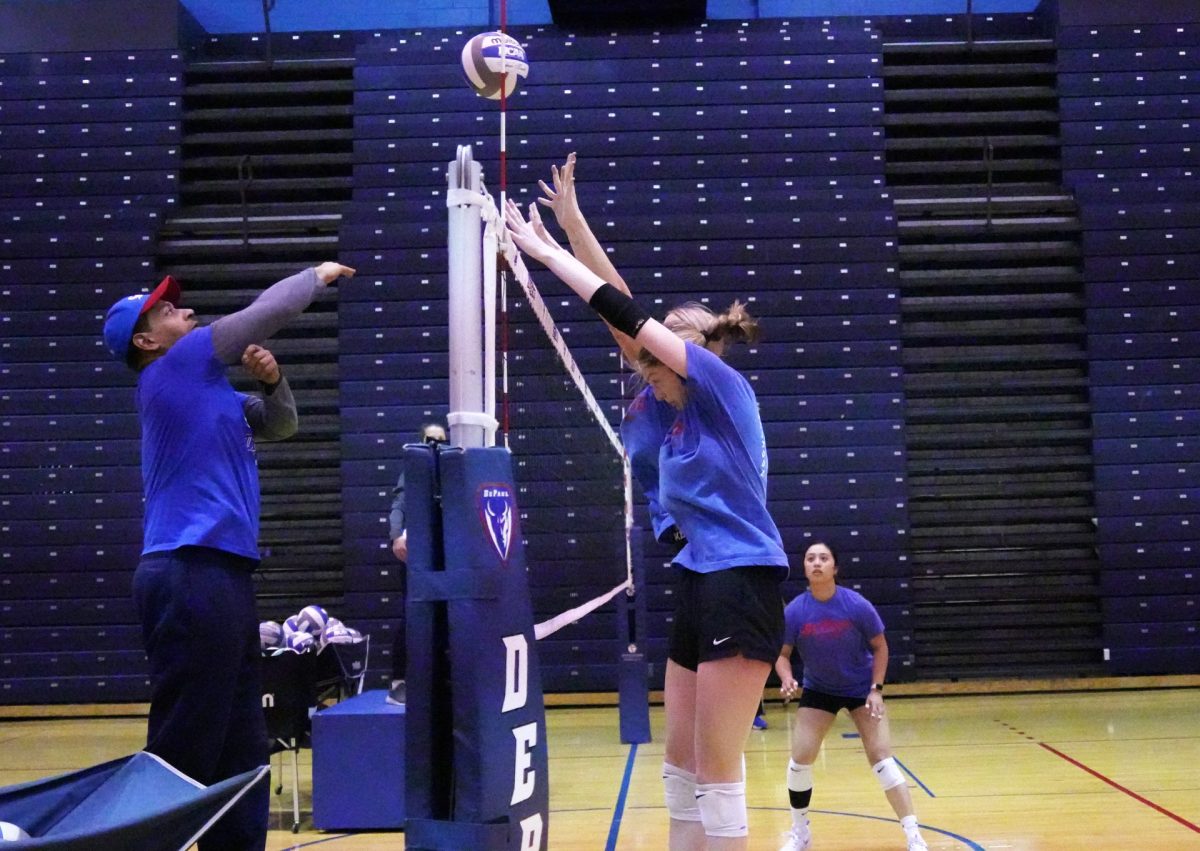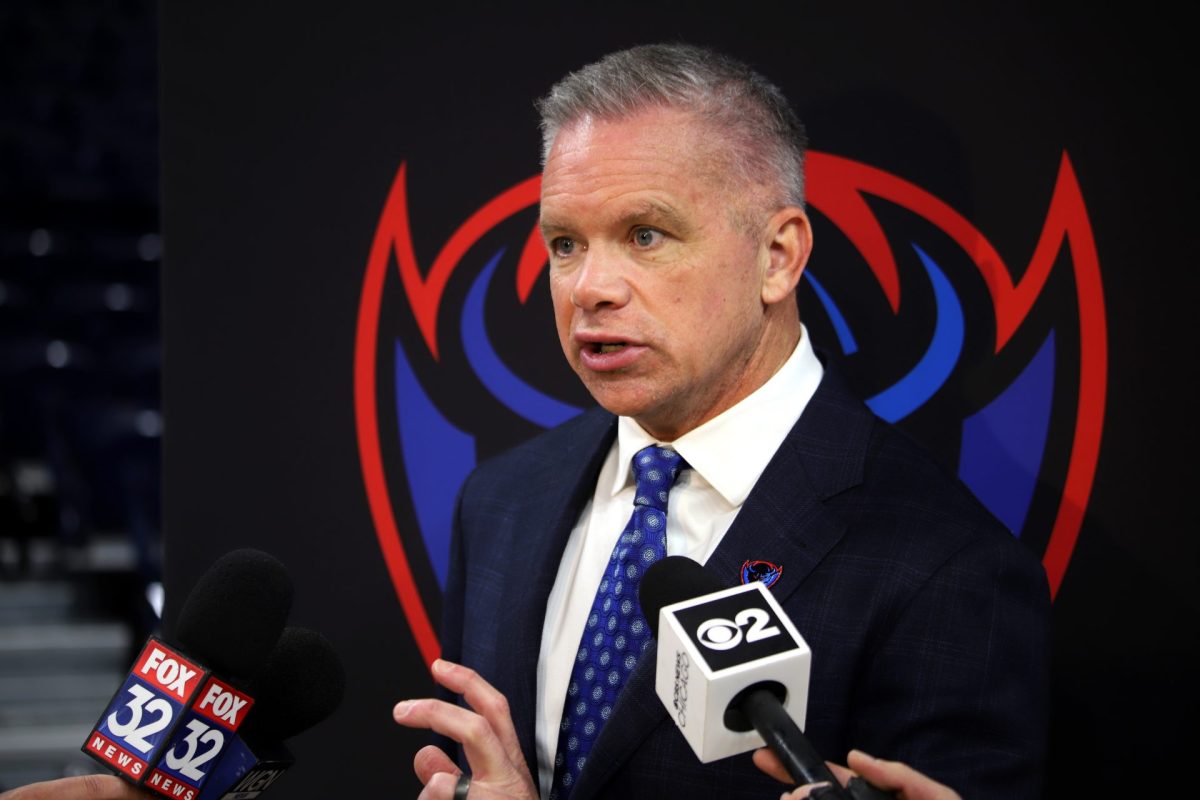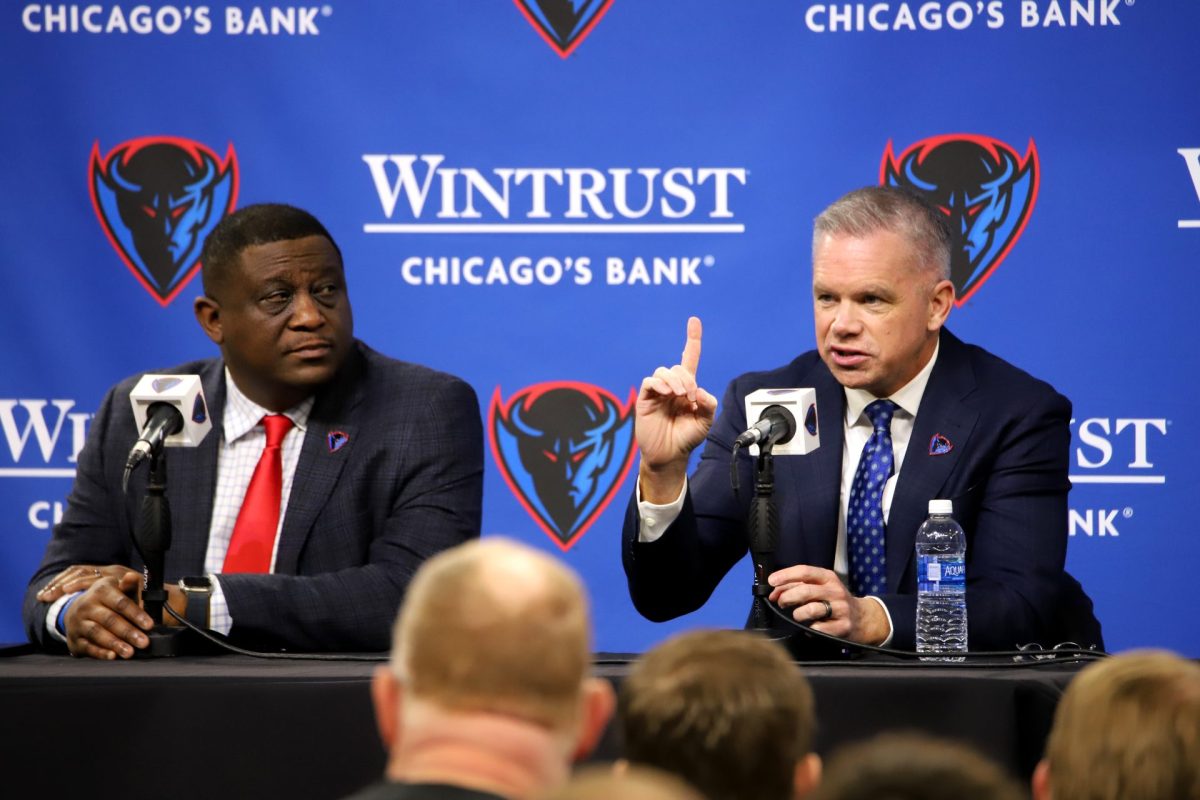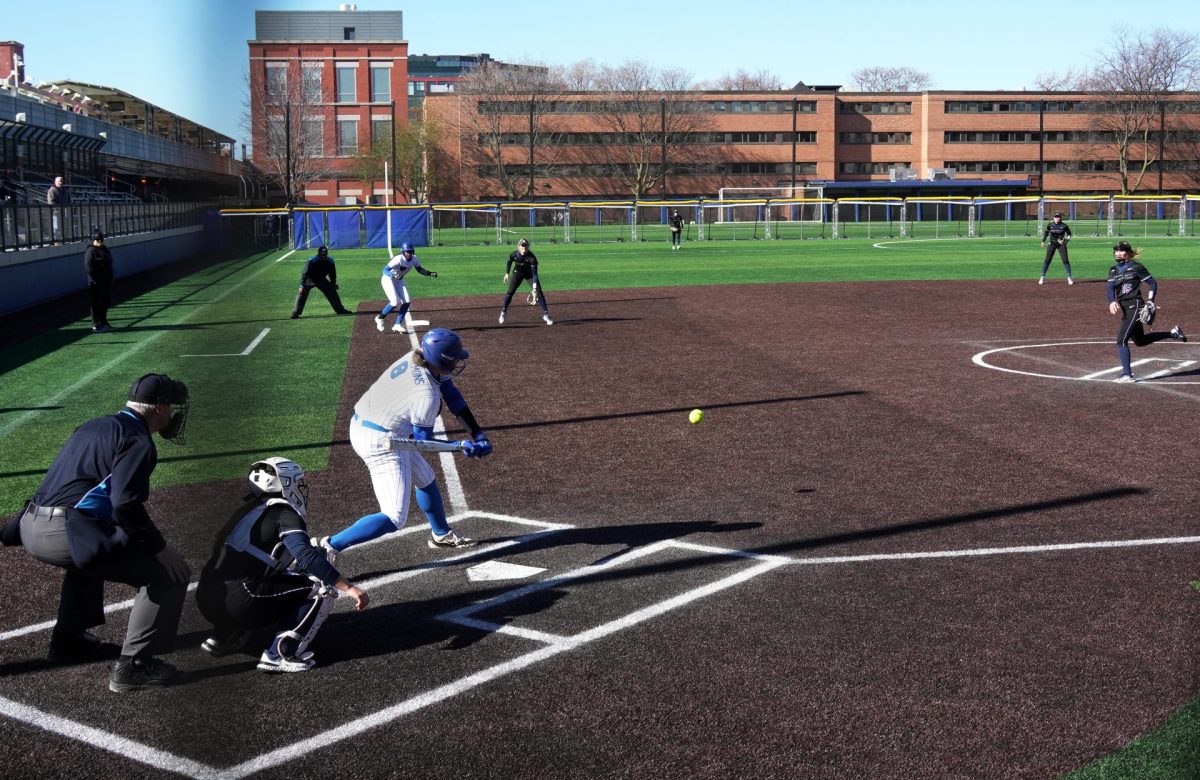Doug Bruno, head coach of the DePaul women’s basketball team, can now add Olympic gold to his extensive coaching r’ÛΩsum’ÛΩ. Serving as assistant coach to Olympic champion Team USA and head coach Geno Auriemma, Bruno returned from London a winner with memories that will last a lifetime.
The DePaulia sat down with Bruno to discuss his Olympic experience.
DePaulia: Coach, sum up your entire Olympic experience and what you gained from this opportunity.
Bruno: First of all, it was a great professional and competitive experience. That said, there’s an understanding when you’re coaching USA basketball that you have to win. You can’t come home with silver. So when I say it was a great professional and competitive experience, that’s exactly what I mean – there was no time to go watching any other event, there’s no time to go sightseeing in London – we’re totally focused on getting the gold medal.
Then once that actually happened, it was just a great feeling of euphoria for the women and relief for the coaching staff that we had achieved what we’d gone there to do.
DP: Talk about the exhibition games you played stateside before going to the Olympics and how that gave you a sense of the kind of talent you had.
B: Well this is a four-year process, it’s not just the – we had very few exhibitions. One of the hardest things about coaching in the Olympics is that you just don’t get your players [for very long] to work with them. Whereas China and these other teams have 40 to 60 practice games, we have a total of five. These other women play year-round, so we just don’t get them together as much – I think we had maybe six or seven practices before playing in the actual Olympic Games. That’s what makes what we do hard, is we just have very little amount of time together.
DP: Discuss your history with Team USA, having coached many of the same players at the World Championships in 2010.
B: There’s a real thrill of competitiveness for me, which I just love. But when you look internally to the team itself, getting to work with [Team USA head coach Geno] Auriemma – a great coach – our two assistant coaches Marynell Meadors and Jennifer Gillom — who are two professional coaches – it was just a great part of being a hoops junkie, to get to do this for four years.
My connection to Tamika Catchings and Candace Parker, we go back to when they were 10-year-old girls and members of my basketball camp.
You’ve got the Maya Moore and Tina Charles connection, who I was head coach of when we were together in 2006 at the FIBA Americas 18-and-under championship and the U19
World Championships in 2007. All of these connections from the inside, the relationships you have with people, are great and made it even more special.
And I’ve said this many times before, but when the horn goes off it’s just a euphoric feeling for the players because [winning gold] is a hard thing to do – everybody thinks it’s easy – but all it takes is one team to beat you and you’re a goat. So it doesn’t matter if you’re winning all your games by 30, you specifically have to go into games and beat the teams that can beat you.
DP: Describe your emotions once the final buzzer sounded and you were with your team during the medal ceremony.
B: After we won and they started getting ready for the medal ceremony, that’s when the nostalgic feeling hit me, the ‘thank you’ feeling of all the people that have put me in a position to be an Olympic coach. You don’t do anything by yourself – there is no self-made man or woman – we’re all helped along the way by a person or groups of people.
I thought back to when I started loving basketball, when I was playing at Quigley South on the South Side of Chicago, never imagining that I would be doing something like this 45 years later.
Ray Meyer, for giving me the scholarship to come to DePaul – I would never have gotten to come to DePaul without him. Jeannie Lenti-Ponsetto was huge in this – to this day is the best captain I’ve ever coached. She’s also been a professional mentor of mine, so Jeannie has done so much for me.
Then you start thinking about every player, every team I’ve been blessed to coach, all my great assistant coaches through the years…this is what’s going through your mind, the thanksgiving of all these people. And then everybody says ‘I can’t believe coaches don’t get gold medals’…you know what, it’s okay. Just being able to know that you were a part of the staff that won gold, nobody can take that from you. I’ll be able to enjoy this the rest of my life.
So the fact that we didn’t get to tour London like my wife and family or go to other events – I’d trade all of that in a heartbeat to be able to have the gold, to know that we were a part of the gold medal-winning staff of the 2012 London Olympics.”
DP: Talk about the opportunity you and the team had to meet the president and vice president as well as the entire send-off process.
B: “You know, I get emotional when I talk about this, but one of the most impressive parts of the whole trip was when they assembled us in D.C. before being sent off. We’re not going over there as soldiers but as ambassadors of the United States to win in the largest global sporting event.
We were fortunate enough to also go to the Arlington Cemetery, where we laid a wreath at the Tomb of the Unknown Soldier. To stand there and be a part of that ceremony with men and women in our military services, it was simply an experience that can’t be put into words. I mean we’re winning basketball games and these men and women are giving their lives for our country.
As for the President, after our game against Brazil at the Verizon Center in D.C., we met with him – there’s a full practice gym inside the arena – so we met with him there. It’s really enclosed, so the only guys that could’ve shot the president were one of us [laughs]. Even the Secret Service was a little bit laid back. It’s not only that we got to meet the president – I mean, we got to meet him formally – but then he spent 15 to 30 minutes just shooting the breeze with us, which was really cool. I was very self-conscious not to get in any of the pictures, so I don’t have any good pictures of myself and the president, but afterwards I realized that was a mistake to not get a picture with him when you can [laughs].
And then in the evening we charter a plane with the men’s basketball team to Manchester United, so we’re on a plane with LeBron, Kobe, Kevin Durant, Chris Paul and all those guys… so that was really a day that I’ll remember forever.”
DP: You mentioned that going into the Olympics, walking away with anything but a gold is unacceptable, but how do you manage those expectations and the pressure that comes with them?
B: “You work. My management of it is just to work. You know, you have to make sure that when we’re on a flight back to Chicago when this is all said and done, that there’s no stone unturned. You don’t want to be sitting on the flight back home saying ‘I wish I would’ve done this or I wish I could’ve done that,’ so my method is just to outwork it and not let pressure bother you and stay focused on what you intend to do.”
DP: You and Team USA really didn’t run into too much trouble against an opponent until your semifinal game against Australia. Talk about that one.
B: “Australia was our gold game. They were the one team that could’ve beaten us. They were my scout for the World Championships in 2010, so I’ve been obsessed with them since this whole process started. And they’re good, they were up on us 47-43 at halftime and shot 61-63 percent. They got anything they wanted and really took it to us – their guards broke us off the bounce, and they had us on the ropes. Coach [Auriemma] made a good couple adjustments at halftime, the leadership of our team – [Diana] Taurasi, Catchings and Sue Bird – got in that locker room before we did and told the team what’s what and not to panic.
And then we came back and held them to 23 points in the second half – Elizabeth Cambage, their 6-9 girl, who had 19 points in the first half had zero in the second. I had made a couple suggestions that Coach Auriemma did take and I was proud of that, putting Asjha Jones on Cambage and she never got position the rest of the game. We got great contributions from our bench from players like Lindsay Whalen and Seimone Augustus and gave us a nice lift. That’s one of the strengths of our team is we go 12-deep – some of these other teams can play with us six or seven-deep but can’t match our entire team’s talent.”
DP: Talk more about your relationship with Coach Auriemma, having shared many professional and personal experiences together.
B: “Well he’s a great man and a hell of a coach – he’s just good to people. Because he has a very funny public persona that is very outspoken and candid, sometimes the fact that he is a good human being and is good to and for his players goes unnoticed. As a coach, I just think he’s got great instincts – and it’s not so much what he knows, even though I think he knows more than most, it’s still how he relates to his players. He’ll deliver the tough love and accountability necessary to make people want to do what they sometimes don’t want to do. So I think there’s just a special talent there, having spent so much time with him.”
DP: Finally, where does winning gold at the Olympics rank in the overall body of your career?
B: “My highest achievement is the total body of work at DePaul. Winning a gold medal is an individual experience equal to the body of work that is the DePaul program. Going to 17 NCAA tournaments including the last 10 in a row is not an easy thing to do. But this experience has helped me gain a stronger sense of confidence about what we’re doing and accomplishing at DePaul.”
ξ


